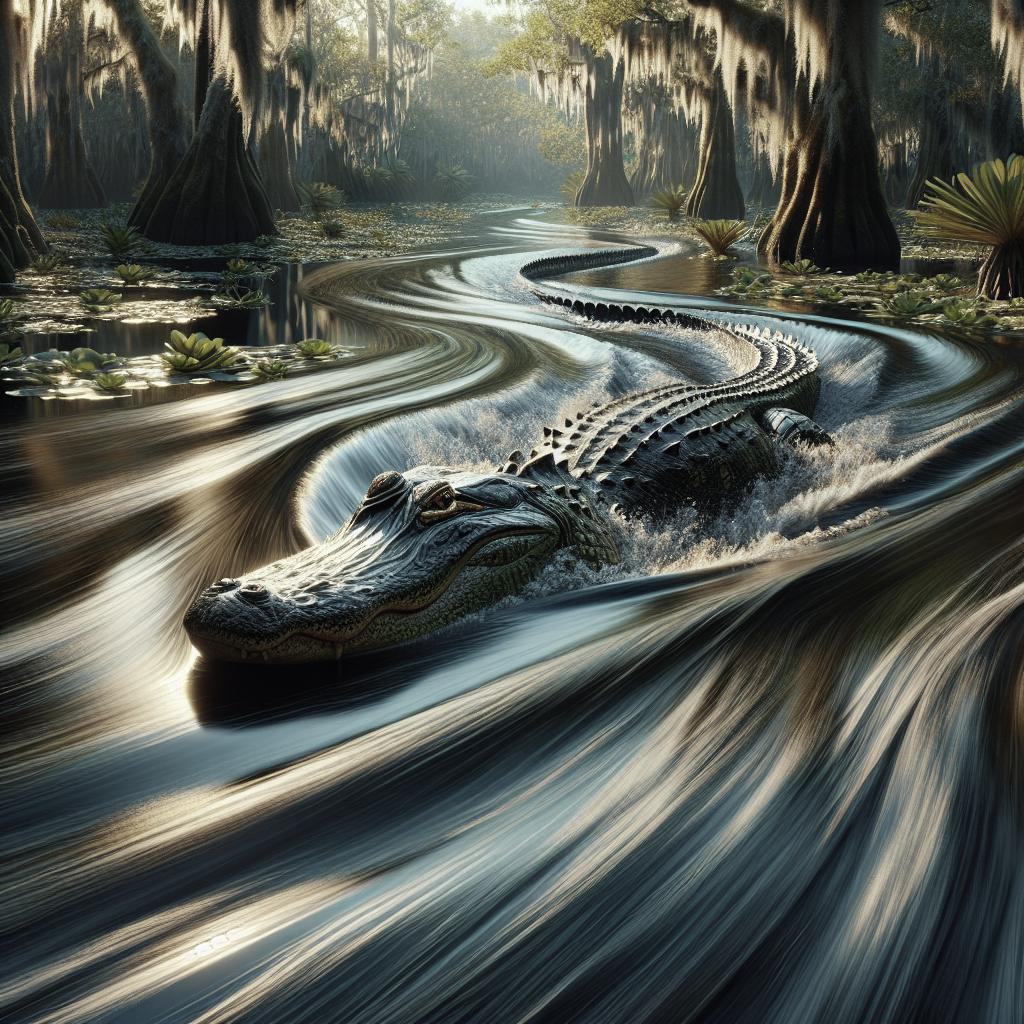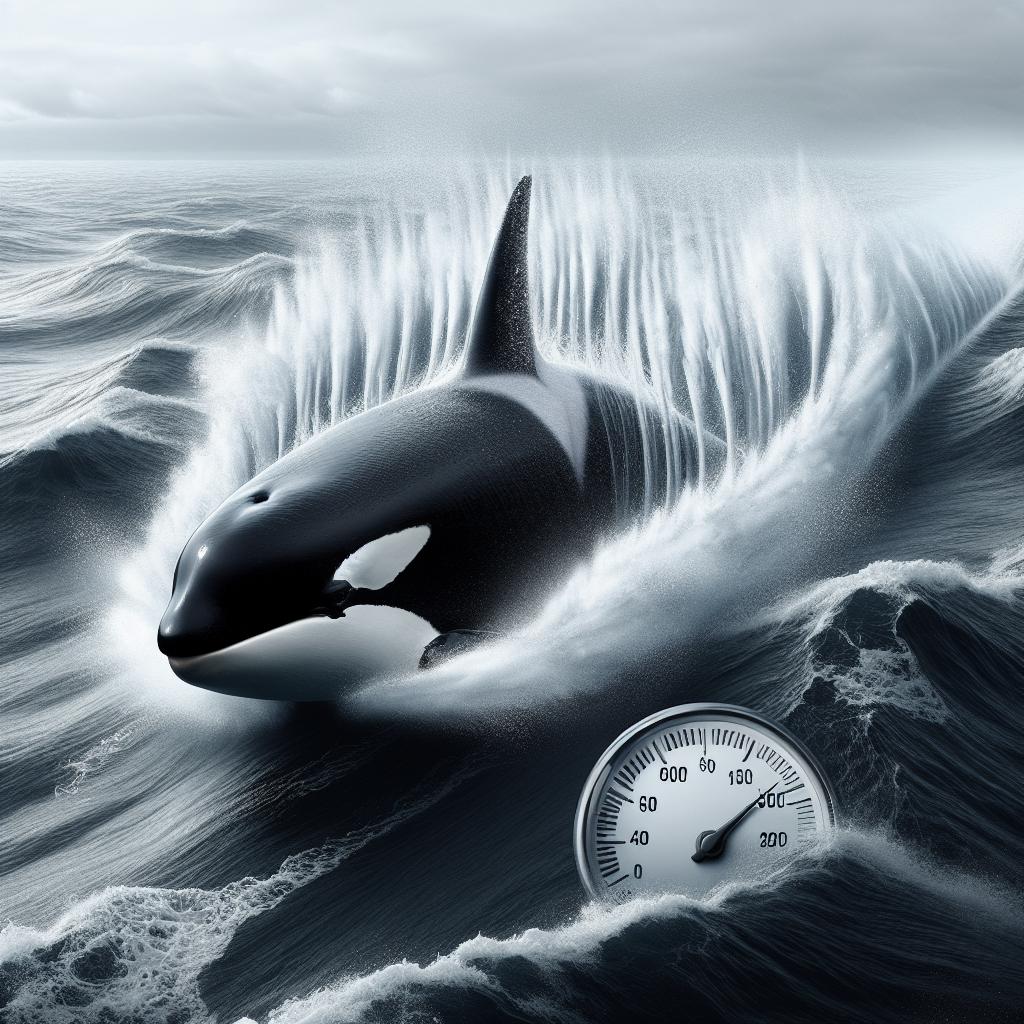How Fast Are Alligators in Water Alligators are often subjects of fascination and fear, with many myths surrounding their speed and abilities. In reality, understanding the true capabilities of alligators helps maintain a balanced perspective about these magnificent creatures. This article delves into five common myths about alligators, especially focusing on their speed in water compared to land, and what actually happens when they chase prey or interact with their environment. We’ll explore whether alligators truly are lightning-fast predators or if much of what we believe is simply lore. By dissecting each myth, you’ll gain a clearer understanding of alligator behavior and speed, applying scientific facts and observational studies. Whether you’re a wildlife enthusiast or just curious about these ancient reptiles, this detailed breakdown will offer valuable insights into the real speed of alligators.
Myth #1: Alligators are incredibly fast on land.
The belief that alligators are incredibly fast on land is widespread, likely originating from the need to project power and instill fear. While it’s true that alligators can move quickly in short bursts, they are not built for sustained speed on land. Typically, an alligator’s sprint can reach speeds of up to 11 miles per hour (mph) for a very short distance. This rapid movement is usually to capture prey or evade immediate threats. However, their primary mode of movement on land is much slower, often a casual crawl at about 1 to 2 mph, which conserves energy and is more reflective of their cold-blooded nature. Interestingly, their anatomy supports quick bursts rather than endurance. Strong, muscular limbs allow for sudden lunges, but these are not sustainable. Once the immediate need for speed passes, alligators revert to slower, more energy-efficient movements that align with their predatory lifestyle.
Myth #2: Alligators are faster in water than on dry land.
While it’s true that alligators are more agile in water due to their aquatic adaptations, the notion that they are significantly faster in water compared to land needs clarification. Alligators are built to be stealthy hunters in water, where they can move at speeds of up to 20 mph in short bursts using powerful tails. In their aquatic environment, they rely on their strong tails to propel themselves efficiently. This ability is due to their streamlined body shape and webbed feet, which allows them to navigate water with minimal effort. In contrast, their movements on land tend to be more labor-intensive and slower. However, sustained swimming speed is different from these bursts of movement. For longer distances, their swimming pace is more measured, around 2 to 3 mph. This is sufficient for sneaking up on prey but far from the high-speed chases often dramatized in popular media.
Myth #3: Alligators can catch up to a speeding boat.
This particular myth often gets exaggerated in movies and TV shows, leading to a skewed perception of an alligator’s swimming speed. While an alligator can swim fast, the idea that it can maintain the pace of a speeding boat is far from accurate. An alligator’s maximum burst speed in water is around 20 mph, but boats generally travel much faster. Even a slow boat can easily exceed 30 mph. Alligators use their burst of speed primarily to catch prey over short distances and cannot sustain such speeds for long periods. Thus, if you’re in a boat traveling at typical speeds, you are well beyond the alligator’s range of capture. The exaggerated danger of alligators chasing down speeding boats remains in the realm of fiction rather than fact.
Myth #4: Alligators are slow when it comes to attacking prey.
There’s a common narrative that alligators are sluggish when they attack their prey, but this couldn’t be further from the truth. Alligators are ambush predators; they rely on stealth, patience, and quick, powerful strikes to catch their prey. When an alligator identifies a potential meal, it remains almost motionless, blending seamlessly into the environment. This camouflage, combined with their incredible burst of speed, makes their attack deadly and rapid. They can strike with incredible swiftness, taking the prey by surprise and offering little chance for escape. Thus, the myth that alligators are slow attackers does a disservice to their predatory instincts. In reality, the combination of patience, power, and speed makes them efficient hunters capable of catching even the swiftest of prey.
Myth #5: Alligators are faster in warm weather and slower in cold weather.
The activity levels of alligators indeed fluctuate with temperature, but the idea that they become strikingly faster in warm weather and sluggishly slow in cold weather simplifies a more complex reality. Alligators are ectothermic creatures, meaning their body temperature and metabolic rate are influenced by their environmental temperature. In warm weather, they are indeed more active and capable of faster movements. Their metabolism works at a more efficient rate, contributing to quicker responses and increased hunting activity. However, saying they become drastically faster might be an overstatement. Conversely, in colder temperatures, alligators do become less active and slower. Their bodily functions slow down, resulting in reduced mobility and a more dormant state. However, this decrease in speed is more about survival and conserving energy rather than being completely immobilized. Final Thoughts Understanding the behaviors and capabilities of alligators demystifies exaggerated claims and enriches our relationship with these ancient reptiles. Here’s a concise summary of the truths behind the common myths about alligator speed.
| Myth | Reality |
|---|---|
| Alligators are incredibly fast on land. | Alligators can sprint up to 11 mph in short bursts but mainly move slowly on land. |
| Alligators are faster in water than on dry land. | Alligators are more agile in water, able to swim up to 20 mph in bursts but swim at 2-3 mph over longer distances. |
| Alligators can catch up to a speeding boat. | Alligators’ burst speed is far less than the speed of a boat, making this myth untrue. |
| Alligators are slow when it comes to attacking prey. | Alligators are swift and powerful hunters, adept at ambush attacks. |
| Alligators are faster in warm weather and slower in cold weather. | Temperature affects alligator activity, making them more active in warmth and more dormant in the cold, but not extraordinarily faster or slower. |
Understanding these myths provides not only a clearer picture of alligator behavior but also enriches our ability to respect and coexist with these incredible reptiles.


